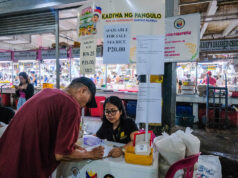Gov’t simplifies procedures for EU-bound goods
THE GOVERNMENT has moved to simplify procedures for Philippine exporters to the European Union (EU), as the Bureau of Customs (BoC) released guidelines for self-certification of origin in order to avail of lower tariffs under the EU’s Generalized System of Preferences (GSP).
In Customs Memorandum Order No. 50-2019, the BoC said the guidelines would simplify export processes by allowing exporters to certify “preferential origin” — enabling them to avail of lower tariffs — through a Statement of Origin.
The Philippines is one of only eight countries with GSP+ status (the others being Armenia, Bolivia, Cape Verde, Kyrgyzstan, Mongolia, Pakistan and Sri Lanka), under which it enjoys zero duties on more than 6,000 products exported to the EU.
Products from countries that enjoy this status qualify for preferential tariffs with certification that the products come from those countries.
The transition period to this Registered Exporter (REX) system replaces the previous method, whereby BoC issues certifications for high-value exporters. Low-value exporters submit invoice declarations.
Philexport President Sergio R. Ortiz-Luis, Jr. said in a telephone interview on Monday that this system would reduce red tape and expenses, but will not have a significant impact on export volumes. “It’s good because it cuts red tape, but it’s not something that will increase exports dramatically,” Mr. Ortiz-Luis said.
Trade Secretary Ramon M. Lopez said that the new guidelines will improve the process of selling goods to the EU. “That will facilitate the utilization of the EU GSP+ and make it easier for exporters to go through the process of exporting,” Mr. Lopez said in a mobile phone message.
Under the guidelines, the BoC’s Export Division assesses electronic applications submitted by exporters. Exporters complete a statement of origin stating their registered exporter number, and confirming their Philippine preferential origin under the GSP.
The registered exporter is expected to maintain an account of its production of goods qualifying for preferential treatment; keep customs documents, evidence of manufacturing materials used and a copy of the statement of origin; cooperate with BoC in its verification procedures; and notify the BoC and its buyer if there is incorrect information in the statement.
The BoC will assess exporters’ documents and inspect their business premises.
Verification can be conducted under reasonable doubt of the authenticity of the statement or at random.
The BoC can revoke registration if the exporter no longer exists, no longer meets GSP conditions, withdraws from exporting under the GSP scheme, fails to keep up-to-date information, or provides incorrect information that enables them to wrongfully obtain preferential tariffs.
The guidelines take effect 15 days from their publication in a newspaper on Monday. — Jenina P. Ibañez



